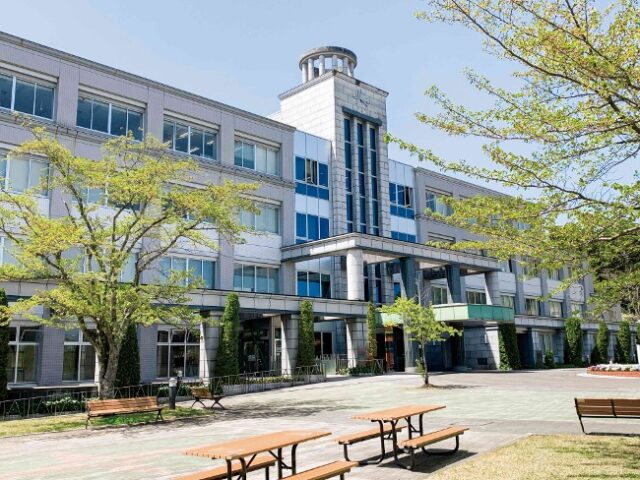
Expansion of new study support system to reduce financial burden on more students
Based on the Act on Support for Studying at Universities, etc., this system provides tuition fee reductions and exemptions to ensure that students enrolled at universities, etc. who have been confirmed to meet the specified requirements will not have difficulty studying due to financial reasons. This support will be provided in the form of a grant-type scholarship with no obligation to repay.
Students eligible for support must meet certain requirements such as household income. Regarding reduction/exemption of tuition fees, etc., for eligible students from resident tax-exempt households who attend or enroll in a four-year university, the reduction/exemption amount of admission fees is approximately 4 yen for national and public universities, approximately 28 yen for private universities, and tuition fees. The amount is approximately 26 yen for national and public universities, and approximately 54 yen for private universities (both have upper limits). The benefit-type scholarship will be paid 70 yen per month for national and public university students who commute from home and 29,200 yen per month for those who attend school away from home, and 66,700 yen per month for private university students who commute from home and 38,300 yen per month for those who do not live at home.
In addition, even if they are not tax-exempt households, there are two categories of households that are similar to this: (300) households with an annual income of up to 300 million yen, and (380) households with an annual income of more than XNUMX million yen and up to XNUMX million yen. , two-thirds of the amount of tuition reduction/exemption and scholarships provided to students from tax-exempt households, and one-third of the amount given to students from tax-exempt households for ②.
The new higher education study support system, which is characterized by generous support, is expected to be further expanded from 12 onwards, as part of the "Acceleration Plan" of the "Children's Future Strategy" decided by the government in December last year. There is. In other words, for households with three or more dependent children, including students (multi-child households), eligibility will be expanded to the middle class with annual household income of up to approximately 2024 million yen, and tuition fee reductions will be given to one-fourth of tax-exempt households. and scholarships can be provided. Additionally, students from middle-class households enrolled in science, engineering, and agriculture majors at private universities will receive a tuition reduction or exemption equivalent to the difference in tuition fees from liberal arts majors.
Furthermore, starting in 2025, restrictions on household income will be abolished for students from multi-child households, and it is also being considered that the amount of tuition fee reductions and exemptions for universities, etc. will be the same as those for tax-exempt households, without reducing the amount. . The policy also states that households will only have to pay tuition fees for a maximum of two children, regardless of the number of children they have and their household income. It is expected that specific consideration will be given to the academic requirements, etc. for the target students in this case.

Regarding the scholarship system for students, in addition to grant-type scholarships under the new higher education study support system, it is said that efforts will be made to reduce the burden of conventional loan-type scholarships from the perspective of enhancing study support. There is. Specifically, we plan to consider measures to reduce the burden, such as raising the income level to which the reduced refund system applies, and for households with two or more children, deducting income tax when returning scholarships.
Starting in 2024, a ``deferred payment system'' will also be introduced for graduate school master's degree programs, in which the government will pay tuition fees while enrolled, and refunds will be based on income after graduation. Initially, the new system will start targeting students who were eligible for the new system at the undergraduate level and have since entered graduate school directly, but from 2025 onwards, consideration is being given to expanding the number of eligible students.
As mentioned above, the national university support measures are planned to evolve year by year, with the expansion of the new higher education study support system at its core. This is exactly what it should be called an "acceleration plan." These measures will reduce the financial burden on many students, accelerate the development of human resources necessary for the development of the country, and further contribute to maintaining the vitality of society amidst the rapid decline in the birthrate in Japan. I look forward to it.
While the educational support system has been expanded and a detailed support menu has been prepared, it is undeniable that the system is becoming more complex and confusing. However, students who wish to benefit from the system need to deepen their understanding of the academic support and requirements of eligible students on a daily basis, rather than relying on others. We recommend that you obtain the latest information from related websites of the Ministry of Education, Culture, Sports, Science and Technology and the Japan Student Services Organization, as well as university and university personnel, so that you can complete the necessary procedures without missing any opportunities.
Tohoku Bunka Gakuen University Councilor/University Secretary General
Mr. Yasuhiro Komatsu
Completed master's program at Tokyo Gakugei University in 1989, joined Ministry of Education in the same year, Embassy of Japan in Korea in 99, Specialist in the Minister's Secretariat, Ministry of Education, Culture, Sports, Science and Technology in 02, Planning Officer, Elementary and Secondary Education Bureau, Director of the National Institute for Educational Policy Research, Comprehensive Educational Policy Bureau He retired after 22 years after serving as a section manager, etc. During this time, he held positions such as Director of General Affairs at Kyoto University, Counselor at Tokyo Gakugei University, Vice President and Director at Hokuriku Advanced Institute of Technology, and Director at the National Youth Education Organization. He graduated from Kanagawa Prefectural Sagamihara High School.
